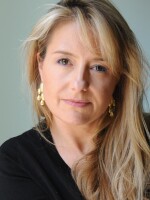RENEE MONTAGNE, host:
Federal prosecutors in the case against confessed terrorist Zacarias Moussaoui want the judge to reconsider her ruling. On Tuesday, Judge Leonie Brinkema tossed out half the government's case. She said prosecutors would not be able to call six aviation security witnesses or present related evidence. The ruling came after prosecutors revealed that a government lawyer had inappropriately coached witnesses.
NPR's Laura Sullivan reports.
LAURA SULLIVAN reporting:
In the 23-page motion, prosecutors are blunt. They say the aviation security witnesses and evidence are the core of their case, and the loss of them will hamstring their efforts. They call Judge Brinkema's ruling overly broad, grossly punitive, and too severe. They call the government lawyer accused of coaching witnesses a lone miscreant.
But when it comes to convincing Judge Brinkema to overturn herself, it's not clear how well their arguments will go over.
Mr. ANDREW MCBRIDE (Former Federal Prosecutor): It's always very difficult to ask a judge to change a decision that the judge just made. In this case, made in very forceful terms.
SULLIVAN: Andrew McBride is a former federal prosecutor who has argued cases before Judge Brinkema. He says the prosecutors are even more challenged, because nothing has changed in the one day since Judge Brinkema handed down her ruling.
Mr. MCBRIDE: Asking a judge to reconsider his or her own ruling, based on the same facts, and come out differently, is a difficult thing.
SULLIVAN: Judge Brinkema ordered prosecutors to remove all mention of aviation security from the trial. It was a significant blow to the prosecutors who have already told the jury, in their opening statement, that they would be presenting a lot of evidence and witnesses about just that.
The prosecution's case is based on the idea that if Zacarias Moussaoui hadn't lied when he was arrested three weeks before September 11th, the FBI and the Federal Aviation Administration would have been able to prevent the attacks. Prosecutors said the FAA would have tightened security, banned small knives from airplanes, and put up better watch lists. Defense attorneys countered that Moussaoui didn't know anything about the plot.
Without the aviation security information, the prosecution would have to prove that the FBI alone could have foiled the conspiracy in the three weeks that Moussaoui was in custody before the attacks. McBride said the government situation is not good.
Mr. MCBRIDE: It's devastating. It's devastating to lawyers who have spent so many years putting this case together for the United States, so many years working with the victims' families. It's just a shame that in the one case, where the facts were going to be exposed to a well-selected jury, for that all to go down the drain based on the conduct of one woman, one lawyer--it's tragic in dimension.
SULLIVAN: The lawyer is TSA attorney Carla Martin. Martin had been acting as a liaison between the prosecutors and the witnesses. And, apparently, also acting as a witness coach. The aviation security witnesses testified that Martin had emailed them court transcripts and commentary in violation of the judge's orders. She also appears to have told prosecutors that the witnesses all refused to speak to defense attorneys, which wasn't true.
In their motion, prosecutors asked Judge Brinkema to reinstate the witnesses, and let the defense broadly cross-examine them. Or they suggested letting the government replace the witnesses with other employees Carla Martin didn't speak with. At a minimum, they argued, they should be allowed to introduce evidence of FAA security directives.
If Brinkema doesn't change her mind, prosecutors could take their plea to the Fourth Circuit Court of Appeals. But University of Maryland law professor, Michael Greenberger, who worked in the Clinton Justice Department, says that might not work much better.
Professor MICHAEL GREENBERGER (Law, University of Maryland): Given the dramatic nature of the bungling, I, for one, would be very surprised that on that record, the Fourth Circuit would pull the fat out of the fire for the Justice Department. I don't think it's out of the question that the government just may see the handwriting on the wall, here.
SULLIVAN: But if prosecutors do succeed in resurrecting their case, and can convince the jury to sentence Moussaoui to death, Greenberger and many other legal experts say it's the defense that will be appealing next.
Laura Sullivan, NPR News, Washington. Transcript provided by NPR, Copyright NPR.






